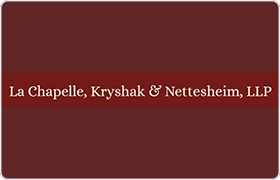Junction City Foreclosure Lawyer, Wisconsin
Sponsored Law Firm
-
 x
x

Click For More Info:
-
La Chapelle, Kryshak & Nettesheim, LLP
262 W Grand Ave Wisconsin Rapids WI 54495» view mapReal Estate Law Passionate and Dedicated Attorneys
The law firm of La Chapelle, Kryshak & Nettesheim, LLP, has provided legal services to the people of central Wisconsin for over a century.
800-886-1251
Not enough matches for Junction City Foreclosure lawyer.
Below are all Junction City Real Estate lawyers.
Sally A. McDonald
Juvenile Law, Real Estate, Family Law, Corporate
Status: In Good Standing Licensed: 33 Years
Torren K. Pies
Landlord-Tenant, Traffic, Dispute Resolution, Estate
Status: In Good Standing Licensed: 39 Years
Brian G. Formella
Landlord-Tenant, Traffic, Lawsuit & Dispute, Child Custody
Status: In Good Standing Licensed: 39 Years
Janet B. Roberts
Landlord-Tenant, Traffic, Lawsuit & Dispute, Pharmaceutical Product
Status: In Good Standing Licensed: 44 Years
 Nicholas Abts Wisconsin Rapids, WI
Nicholas Abts Wisconsin Rapids, WI AboutLa Chapelle, Kryshak & Nettesheim, LLP
AboutLa Chapelle, Kryshak & Nettesheim, LLP Practice AreasExpertise
Practice AreasExpertise
